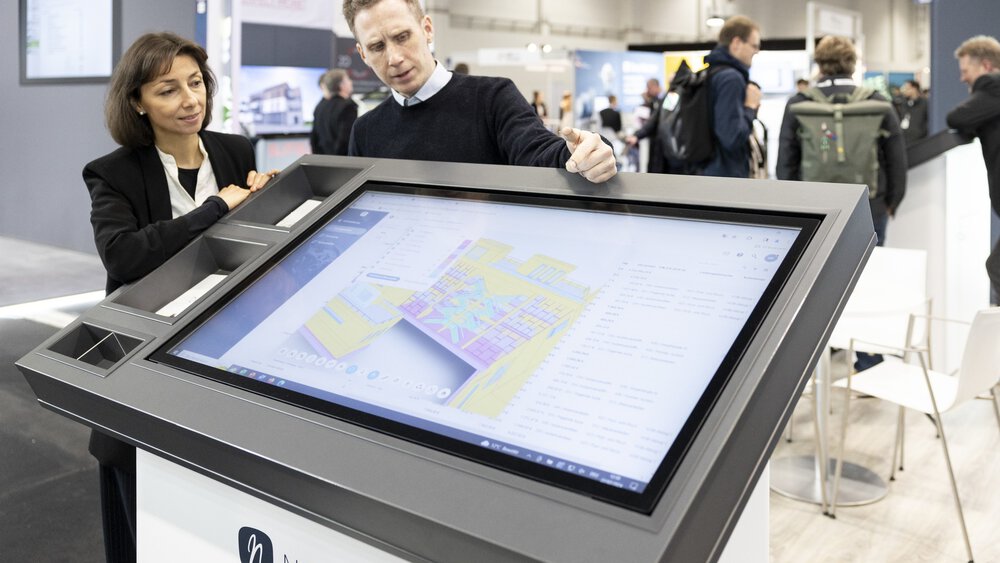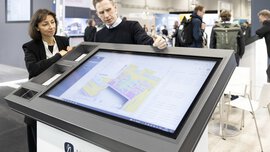How digital solutions are transforming the construction industry
October 15, 2025
- Market in transition: between a mountain of waste and an opportunity for the future
- Digital innovations are the key to the circular economy
- digitalBAU 2026: Exhibitors are focusing on the circular economy
The construction sector is undergoing a profound shift. Driven by stricter environmental regulations and the need to conserve resources, the circular economy is steadily becoming more important in the construction industry. digitalBAU (March 24 to 26, 2026 in Cologne) will focus on digital technologies for circular construction as one of four key topics at the event.
The facts underscore the urgency of the digital transformation: According to the German Federal Environment Agency, around 61% of all the waste generated in Germany in 2022 was mineral construction waste. A large proportion of this waste is sent for low-value recycling, amounting to an impressive 208 million tons, and must be reduced.
An important starting point for that is the circular economy. Cornelia Lutz, Senior Director Exhibitions and responsible for digitalBAU 2026, also emphasizes that: “The digital circular economy isn’t an option, it’s an urgent necessity. digitalBAU 2026 offers an ideal platform to showcase the potential of digital transformation for more sustainable and more resource-efficient construction, and to promote the necessary networking between the players involved.”
A market in transition: between a mountain of waste and an opportunity for the future
Despite the growing understanding of resource-efficient construction and rising recycling rates, a recent report by the N-Bau platform shows that only 14 percent of material resources in Northwest Europe come from recycled sources, and only one percent of construction elements is reused. Conversely, the World Economic Forum forecasts savings potential of up to 75 percent in the next 25 years for the built environment’s carbon emissions.
Digital innovations are the key to the circular economy
The digital transformation plays a decisive role in implementing the circular economy, with building information modeling (BIM) now established as a central tool. BIM-based circular design tools enable the subsequent dismantling and targeted reuse of materials to be taken into account as early as the initial planning phases for buildings. This will not only improve material efficiency but also minimize the amount of waste.
Digital material passports that are linked to 6D BIM models are a key component in this context. They contain detailed information on the origin, composition, and recyclability of all components used. That enables materials and components to be systematically returned to new value chains at the end of their predicted useful life. The focus here is not solely on recycling but above all on virtually carbon-neutral reuse.
digitalBAU 2026: Exhibitors are focusing on the circular economy
A large number of companies are presenting concrete solutions and current product developments with the focus on the circular economy. These include software tools for the simplified and database-supported creation of material passports. In addition, highly specialized technology companies are presenting their digital platforms for recording and tracing components, and for better networking of all those involved in the building life cycle.
The digitalBAU 2026 supporting program is also focusing intensively on the key topic of “Circular economy in the construction industry”. A particular highlight is the German Construction Award 2026. The award ceremony will be held on the first day of the trade fair (Tuesday, March 24, 2026). The special category “Circular construction” recognizes outstanding and holistic construction projects.
Downloads
191862
Belonging images



